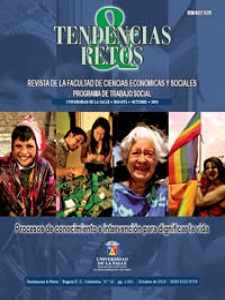Abstract
The intention of this article is to argue about the importance of constructing a memory of the cruelty in Colombia that reaches in the consolidation of an alternative history in order that the new generations understand the dimension from which it has come to us happening and can construct, from the world of the life, a new political culture for a real democracy and new citizenships. Taking account this goal, it occurs an historical route on three moments of the massacres in Colombia: the paradigmatic experience of the Massacre of the Bananeras, the partisan Violence of 60 years 50 and and the violence of the paramilitary project of the Eighties and ninety, during the 20th century. Then there become evident the links that can be established between the memory, the identity and the political culture by the need to accentuate and strengthen the existence of different political cultures that there contain alternative, not hegemonic models, of being a citizen and of be thinking as Colombian. Finally it proposes victims stories that allow a uncover function of the language that goes beyond what the concepts could express and to believe the possibility of representing the traumatic experience, in the consolidation of a reflective judgment for the public deliberationDownloads
Download data is not yet available.



